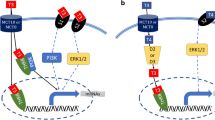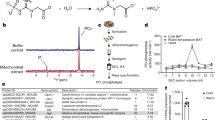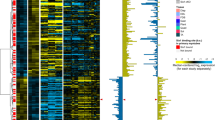Abstract
The role of the thyroid gland in the regulation of metabolic rate has been known since the last century. The knowledge that thyroid hormones increase energy expenditure, in part by lowering metabolic efficiency, dates from the 1950s. Presumably thyroid hormones regulate energy expenditure and efficiency by controlling the rate of transcription of specific genes. However, the number, identity, and relative contributions of these genes are not known. The uncoupling proteins (UCPs) are obvious candidates to mediate thyroid thermogenesis. UCP1 is not a major contributor, since thyrotoxicosis decreases UCP1 expression and inactivates brown fat. Discovery of UCP3 and its regulation by T3 in muscle is an exciting observation, consistent with a role for UCP3 in thyroid thermogenesis. Since free fatty acids appear to regulate UCP3 expression and T3 stimulates lipolysis, further experiments are required to determine if T3 regulation of UCP3 expression is direct or not.
Similar content being viewed by others
Author information
Authors and Affiliations
Corresponding author
Rights and permissions
About this article
Cite this article
Reitman, M., He, Y. & Gong, DW. Thyroid hormone and other regulators of uncoupling proteins. Int J Obes 23 (Suppl 6), S56–S59 (1999). https://doi.org/10.1038/sj.ijo.0800948
Published:
Issue Date:
DOI: https://doi.org/10.1038/sj.ijo.0800948
- Springer Nature Limited
Keywords
This article is cited by
-
Six1 promotes skeletal muscle thyroid hormone response through regulation of the MCT10 transporter
Skeletal Muscle (2021)
-
The role of the sympathetic nervous system and uncoupling proteins in the thermogenesis induced by 3,4-methylenedioxymethamphetamine
Journal of Molecular Medicine (2004)




